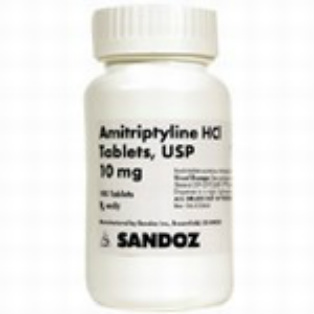Pharmacology definition - Tricyclic Antidepressant

Tricyclic antidepressant
Tricyclic antidepressant is a useful drug used in treating panic disorder, depression, smoking cessation ( buproprion), trazodone ( insomnia), chronic pain syndrome and enuresis.
Tricyclic anti depressant can be divided into two generations. The first generation of tricyclic anti depressant includes desipramine, imipramine and amitryptyline while the second generation of tricyclic anti depressant includes trazodone and buproprion.
Is avoidable to use tricyclic antidepressant and monoamine oxidase inhibitor at the same time due to interaction between drugs may lead to seizures.
Tricyclic antidepressant may lead to potentiating effect of the norepinephrine and serotonin on the postsynaptic receptors by blocking the reuptake of serotonin and norepinephrine form the synaptic cleft.
Tricyclic antidepressant overdose may cause seizures and alteration in mental status. Tricyclic antidepressant overdose can be detected by widening of the QRS complex in the ECG.
Tricyclic antidepressant may block H1 histamine receptor which may lead to sedation. Tricyclic antidepressant may also block muscarinic receptor which may lead to cholinergic side effects such as blurry vision, dry mouth and constipation. Orthostatic hypotension and cardiac arrhythmias are commonly occur due to blockage of the alpha adrenergic receptors. Trazodone may lead to priapism.
Tricyclic antidepressant is a useful drug used in treating panic disorder, depression, smoking cessation ( buproprion), trazodone ( insomnia), chronic pain syndrome and enuresis.
Tricyclic anti depressant can be divided into two generations. The first generation of tricyclic anti depressant includes desipramine, imipramine and amitryptyline while the second generation of tricyclic anti depressant includes trazodone and buproprion.
Is avoidable to use tricyclic antidepressant and monoamine oxidase inhibitor at the same time due to interaction between drugs may lead to seizures.
Tricyclic antidepressant may lead to potentiating effect of the norepinephrine and serotonin on the postsynaptic receptors by blocking the reuptake of serotonin and norepinephrine form the synaptic cleft.
Tricyclic antidepressant overdose may cause seizures and alteration in mental status. Tricyclic antidepressant overdose can be detected by widening of the QRS complex in the ECG.
Tricyclic antidepressant may block H1 histamine receptor which may lead to sedation. Tricyclic antidepressant may also block muscarinic receptor which may lead to cholinergic side effects such as blurry vision, dry mouth and constipation. Orthostatic hypotension and cardiac arrhythmias are commonly occur due to blockage of the alpha adrenergic receptors. Trazodone may lead to priapism.
